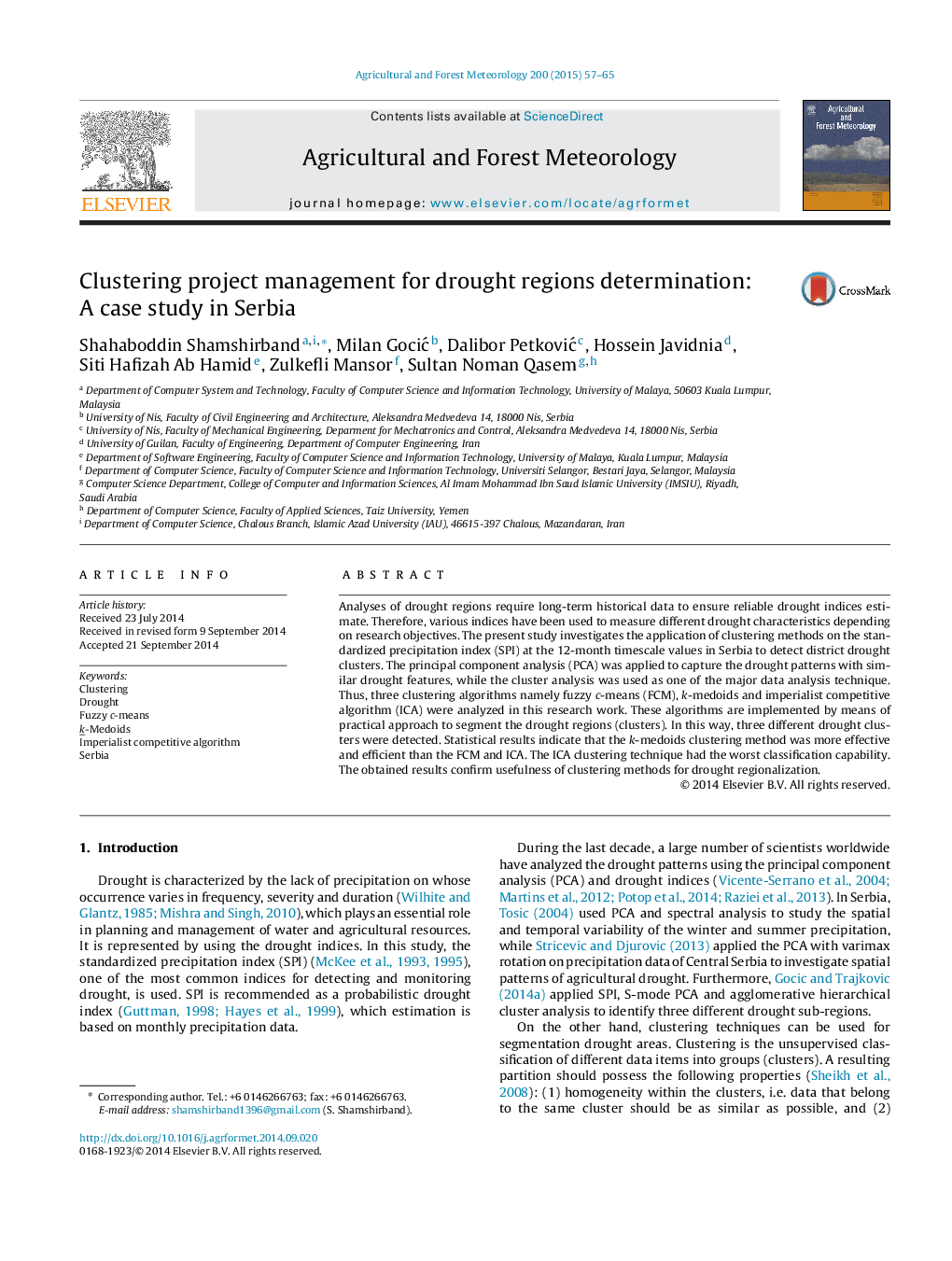| Article ID | Journal | Published Year | Pages | File Type |
|---|---|---|---|---|
| 6537433 | Agricultural and Forest Meteorology | 2015 | 9 Pages |
Abstract
Analyses of drought regions require long-term historical data to ensure reliable drought indices estimate. Therefore, various indices have been used to measure different drought characteristics depending on research objectives. The present study investigates the application of clustering methods on the standardized precipitation index (SPI) at the 12-month timescale values in Serbia to detect district drought clusters. The principal component analysis (PCA) was applied to capture the drought patterns with similar drought features, while the cluster analysis was used as one of the major data analysis technique. Thus, three clustering algorithms namely fuzzy c-means (FCM), k-medoids and imperialist competitive algorithm (ICA) were analyzed in this research work. These algorithms are implemented by means of practical approach to segment the drought regions (clusters). In this way, three different drought clusters were detected. Statistical results indicate that the k-medoids clustering method was more effective and efficient than the FCM and ICA. The ICA clustering technique had the worst classification capability. The obtained results confirm usefulness of clustering methods for drought regionalization.
Related Topics
Physical Sciences and Engineering
Earth and Planetary Sciences
Atmospheric Science
Authors
Shahaboddin Shamshirband, Milan GociÄ, Dalibor PetkoviÄ, Hossein Javidnia, Siti Hafizah Ab Hamid, Zulkefli Mansor, Sultan Noman Qasem,
